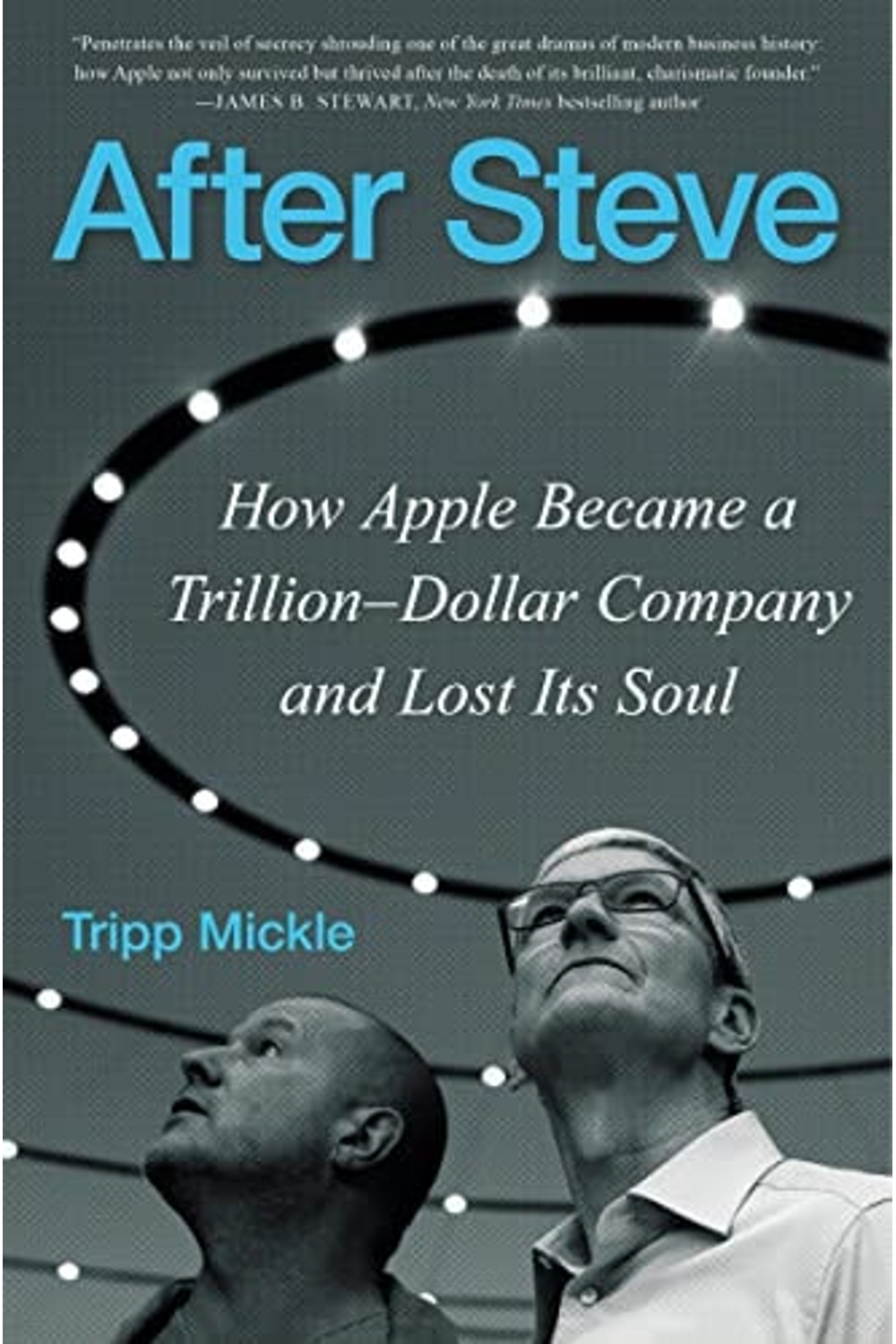**The Untold Story of Apple’s Transformation After Steve Jobs** Tripp Mickle’s *After Steve: How Apple Became a Trillion-Dollar Company and Lost Its Soul* offers an unprecedented deep dive into the post-Steve Jobs era at Apple, chronicling the power dynamics between design guru Jony Ive and operations whiz Tim Cook. This meticulously researched book explores how Apple navigated the transition after its visionary leader’s death, revealing the internal battles and strategic shifts that shaped the company’s trajectory. Mickle illuminates the contrasting leadership styles of Ive and Cook, painting a vivid picture of their distinct approaches. Ive, the creative genius behind iconic designs like the iPhone and iPad, embodies Apple’s innovative spirit. Cook, a master of supply chain management and efficiency, focused on maximizing profits and expanding Apple’s global reach. As Apple’s valuation soared to trillions, *After Steve* questions whether this success came at the expense of innovation and the creative soul that defined the company under Jobs. Through exclusive interviews and insider accounts, Mickle exposes the tensions between design and operations, revealing how Apple’s emphasis on efficiency may have stifled its revolutionary spirit. This book is a must-read for anyone seeking to understand the forces that shaped Apple into the global giant it is today, and whether that success came at the ultimate price.
After Steve: How Apple Became a Trillion-Dollar Company and Lost Its Soul
22,72 $
In stock
From the New York Times’ Tripp Mickle, the dramatic, untold story inside Apple after the passing of Steve Jobs by following his top lieutenantsJony Ive, the Chief Design Officer, and Tim Cook, the COO-turned-CEOand how the fading of the former and the rise of the latter led to Apple losing its soul.
Steve Jobs called Jony Ive his spiritual partner at Apple. The London-born genius was the second-most powerful person at Apple and the creative force who most embodies Jobss spirit, the man who designed the products adopted by hundreds of millions the world over: the iPod, iPad, MacBook Air, the iMac G3, and the iPhone. In the wake of his close collaborators death, the chief designer wrestled with grief and initially threw himself into his work designing the new Apple headquarters and the Watch before losing his motivation in a company increasingly devoted more to margins than to inspiration.
In many ways, Cook was Ives opposite. The product of a small Alabama town, he had risen through the ranks from the supply side of the company. His gift was not the creation of new products. Instead, he had invented countless ways to maximize a margin, squeezing some suppliers, persuading others to build factories the size of cities to churn out more units. He considered inventory evil. He knew how to make subordinates sweat with withering questions.
Jobs selected Cook as his successor, and Cook oversaw a period of tremendous revenue growth that has lifted Apples valuation to $2 trillion. He built a commanding business in China and rapidly distinguished himself as a master politician who could forge global alliances and send the worlds stock market into freefall with a single sentence.
Author Tripp Mickle spoke with more than 200 current and former Apple executives, as well as figures key to this period of Apples history, including Trump administration officials and fashion luminaries such as Anna Wintour while writing After Steve. His research shows the companys success came at a cost. Apple lost its innovative spirit and has not designed a new category of device in years. Ives departure in 2019 marked a culmination in Apples shift from a company of innovation to one of operational excellence, and the price is a company that has lost its soul.
| Authors | |
|---|---|
| Binding | |
| Condition | |
| ISBN-10 | 0063009811 |
| ISBN-13 | 9780063009813 |
| Language | |
| Pages | 512 |
| Publisher | |
| Year published | |
| Weight | 676 |
- Additional information
- Currencies
- USD – United States dollar
- EUR – Euro
- GBP – Pound sterling
- CNY – Chinese yuan
- BRL – Brazilian real
- MXN – Mexican peso
- JPY – Japanese yen
- PHP – Philippine peso
- THB – Thai baht
- PLN – Polish złoty
- CAD – Canadian dollar
- MYR – Malaysian ringgit
- AUD – Australian dollar
- TWD – New Taiwan dollar
- CZK – Czech koruna
- SEK – Swedish krona
- HUF – Hungarian forint
- ILS – Israeli new shekel
- CHF – Swiss franc
- HKD – Hong Kong dollar
- DKK – Danish krone
- SGD – Singapore dollar
- NOK – Norwegian krone
- NZD – New Zealand dollar





